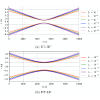Defaulting Differently: The Political Economy of Sovereign Debt Restructuring Negotiations
IF 2.4
1区 社会学
Q1 INTERNATIONAL RELATIONS
引用次数: 1
Abstract
Negotiations to restructure sovereign debt are protracted affairs, and their outcomes, known as “haircuts,” range from 0 to 80 percent creditor losses. Haircuts impact states’ ability to borrow, cost of borrowing, and economic recovery; they also redistribute income—between states and creditors and between domestic interest groups. I conceptualize the interaction between governments and private creditors as a bargaining game where the government’s will to repay is private information. Creditors can make inferences about repayment based on the government’s political economy, but distributional signals are muddled when there are multiple veto players. Where additional uncertainty persists, governments can issue a public declaration of default, triggering costs in international financial markets. This costly signal separates governments that are willing to repay from those that are not and extorts greater concessions as a result. Using data on haircuts and public default declarations in market-based restructurings from 1980 to 2009, I find that governments are more likely to engage in costly signaling when they face heightened domestic constraints. When governments issue public declarations, they are subsequently rewarded with higher haircuts. Defaults do not all look the same, and the economic consequences are varied.

不同的违约:主权债务重组谈判的政治经济学
主权债务重组谈判是一件旷日持久的事情,其结果被称为“削发”,债权人损失从0%到80%不等。减记会影响各国的借贷能力、借贷成本和经济复苏;它们还会在国家和债权人之间以及国内利益集团之间重新分配收入。我将政府和私人债权人之间的互动概念化为一种讨价还价游戏,其中政府的偿还意愿是私人信息。债权人可以根据政府的政治经济状况对还款做出推断,但当存在多个否决者时,分配信号就会变得混乱。在不确定性持续增加的情况下,政府可以公开宣布违约,从而在国际金融市场引发成本。这一代价高昂的信号将愿意偿还债务的政府与不愿偿还债务的政府区分开来,从而迫使政府做出更大的让步。利用1980年至2009年基于市场的债务重组中的折价和公开违约声明数据,我发现,当政府面临更严重的国内约束时,它们更有可能发出代价高昂的信号。当政府发布公开声明时,它们随后会得到更高的折价。违约看起来并不都一样,其经济后果也各不相同。
本文章由计算机程序翻译,如有差异,请以英文原文为准。
求助全文
约1分钟内获得全文
求助全文
来源期刊

International Studies Quarterly
Multiple-
CiteScore
4.10
自引率
7.70%
发文量
71
期刊介绍:
International Studies Quarterly, the official journal of the International Studies Association, seeks to acquaint a broad audience of readers with the best work being done in the variety of intellectual traditions included under the rubric of international studies. Therefore, the editors welcome all submissions addressing this community"s theoretical, empirical, and normative concerns. First preference will continue to be given to articles that address and contribute to important disciplinary and interdisciplinary questions and controversies.
 求助内容:
求助内容: 应助结果提醒方式:
应助结果提醒方式:


